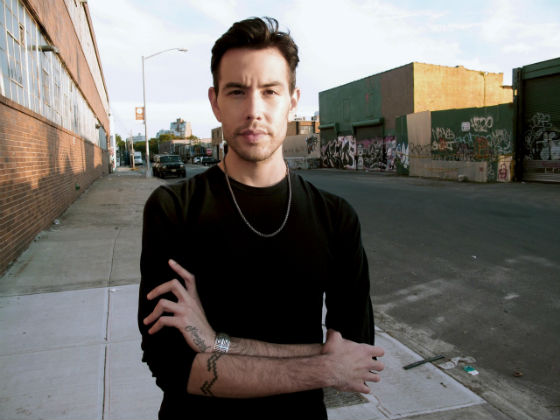
In the last twelve months, Tommy Pico has released two acclaimed books of poetry, IRL and Nature Poem. The podcast he co-hosts, Food 4 Thot, has made its debut, and has featured guests like Angel Nafis and Alexander Chee. He’s been written about at The New Yorker. And he’s been reading at literary venues across the country. Given that Pico’s been doing fantastic work for a while now, it’s great to see his work resonating with so many people. We talked via email this week about the connections between his two books, the creation of the podcast, and much more.
Your books Nature Poem and IRL were released in relatively close proximity, and excerpts of both have shown up at various journals over the last few years. Were you working on both simultaneously? Did you find that each influenced the other to some extent?
Each book kind of sprang from the preceding one. I would hit a beat that I knew I’d have to return to later but didn’t think was in the scope of the poem I was working on. For example in IRL there’s the line (paraphrasing) “I hate nature bc every poem is like poplars, and bunch grasses, and peonies and shit!” And in Nature Poem it says something like, “I used to read a lot of perfect poems, now I read a lot of garbage/ by A.R. Ammons.” My third book Junk (coming out May 2018 from Tin House) is kind of my answer to Garbage. So while the books weren’t written at the same time, they did generate the idea for the next one. And yes, when I get time I have a fourth one planned!
Throughout Nature Poem, there’s a lot of discussion of what a nature poem is and is not, and whether or not this book falls into that category. Was that a question that first led to the writing of this book?
Because I’m a Native person, there’s this stereotype that we’re reverent of nature or whatever. I wanted to mess with that, and be like camping is dumb and fuck lakes and grass sucks. Throughout my numerous repudiations, it becomes evident that it’s not “nature” I really have a problem with (I mean you will not catch me in the woods for nothing). It’s racism, colonialism, homophobia, misogyny, etc. So the “nature poem” that the book ends up becoming is naturally just me.
Both of your books have been book-length poems. What draws you to the long poem as a medium?
Before submitting myself to long form work, I just always felt super unsatisfied with anything I wrote. I always felt like I left too early. Writing long poems is annoying because it makes you stay your ass in the chair and keep going. It’s kind of like the poetic equivalent of “yes, and?” Yet for however frustrating they are, when I’m done I feel like—you know what? I said what I had to say.
You’ve talked about the character of Teebs as someone distinct from you, but Nature Poem also includes a Twitter conversation with Angel Nafis. As a writer, to what extent do you enjoy blurring fiction and nonfiction?
I recently did my birth chart and it basically said I enjoy bending the truth to a certain extent, and that’s kind of true because I will stretch the shit out of the truth if it’s in service of a punchline. That’s kind of all the writing is. I don’t lie to my friends, I don’t lie to my family or other loved ones, but when it comes to writing I see that as the opportunity to chop and screw a lot of things I’ve learned and thought I knew.
You’re now nine episodes into the podcast Food 4 Thot. How did it all come about? And what appeals to you about the seasonal model you’ve been using for it?
The show was borne of the brains of four gay whores who met at the Tin House Summer Writer’s Workshop 2016. When we got together, we found that we could really go in deep about racism and homophobia and stuff, Solange and Beyoncé, the truly Sisyphean garbage that is dating in NYC, and all without sacrificing our literary selves. Books are what drew us together, so they naturally threaded themselves into our conversations. Being the trash millennials that we are, we were like “let’s overshare publicly and turn this into a show!”
The seasonal model was really just so we could make enough episodes to showcase our “vision” (or whatever) in the hopes of gaining network support in the future. So if you know someone with a little scratch who wants to sponsor a gaggle of gays, hit me up!
When we first met, you were running Birdsong. How would you say that your time and involvement with it has affected the work you’ve done since?
In Birdsong I was more in a managerial role and ultimately what it allowed me to do was think six weeks, six months, or a whole year in advance. What I understood when I let it go, however, is that I’m not really a manager. I’m a writer. And I had used my role in the press to kind of procrastinate. So when I did the last issue in 2013, from then on I focused on my writing, made my five year plan, and have been trying to live it out ever since!
What’s next for you?
I am currently working on a screenplay for Cinereach Ltd., the details of which I have to keep on the hush hush. Oh and also at some point, the follow up to Junk which for now I’m calling Food. It’s an epistolary long poem (surprise, surprise) that is kind of a long recipe and involves me learning how to cook with friends.
Follow Vol. 1 Brooklyn on Twitter, Facebook, and sign up for our mailing list.
